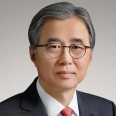*This is an opinion expressed in the Chosun Ilbo Op-ed on October 6, 2022.
The Biden administration has introduced “Inflation Reduction Act (IRA),” and “Made In America” Executive Order, which are protectionist trade policy that encourages domestic production and discriminates against foreign companies in the BBC (Bio, Battery, Semi-conductor Chip) sector, the core driver of future growth. This protectionist trade policy can be called “America First” policy. At its root, there is a hardline China policy in which the United States will check the rise of China. The problem is that while such US protectionism may be useful in holding China in check in the short run, in the long run it will cause great damage to US allies and partners, leading to a global retreat of liberal democracy.
Since its founding, the United States had believed in freedom and maintained faith in it. The American independence movement originated from the “Boston Tea Incident” of 1773. The event came about after the British Parliament enacted the ‘Tea Act,’ which imposed 10% tax of the price on all teas sold in America, Americans declared that there would be “No Taxation without Representation.” Samuel Adams, one of the founding fathers of the United States, along with his colleagues attacked a British East India Company ship docked in Boston Harbor and dumped 342 boxes of tea into the sea. The “Boston Tea Incident” sparked the American independence movement. Pursuing a protectionist trade policy is therefore inconsistent with the founding spirit of America, which became an independent country by opposing the unilateral tax imposition by the British government.
With the slogan of “America is Back,” the Biden administration emphasized that it would pursue a foreign policy, different from that of the Trump administration. And yet it is concerning that the current Biden administration’s protectionist trade policy appears to be “Trumpism without Trump,” likely to destabilize the international order based on the free trade established after the World War II. Since the end of World War II, the United States led the international order by coalescing the Western block around two pillars: the political pillar of liberal democracy and the economic pillar of free trade, and won the Cold War. Many developing countries were able to achieve economic development and liberal democracy blossomed because the United States opened its market to them. This clearly demonstrates that free trade is necessary for liberal democracy to prosper.
The fact that the Biden administration is insisting on “rules-based order” while violating its norms at the same time can also severely damage its leadership. Initially, the Biden administration’s attempt to restructure the global supply chain was based on the argument that China’s unilateralism was undermining global prosperity and threatening national security. In fact, China had imposed trade retaliation against countries that disagreed with its position over several issues, the Terminal High Altitude Area Defense (THAAD) issue, territorial and sea disputes, and the origin of COVID-19. Since Chinese actions were against the spirit of free trade, there was a wide support for the US policy of supply chain restructuring. However, the protectionist trade policy that the Biden administration is currently pursuing is an American-style unilateralism that other countries can hardly support. EU and the Japanese government have expressed a deep concern about the IRA in the midst of advancing discussions on more resilient supply chains.
It is difficult to protect freedom in the midst of a populist frenzy, but one needs to think and work hard on how to protect and nurture freedom. The Biden administration’s protectionism is against the trust of the allies. There is no guarantee that problems of weakened trust in trade issue will not arise in the field of security affairs as well. Distrust of the Biden government, which started with trade issues, could be particularly severe in the Indo-Pacific region, the battleground between the United States and China. China will point out America’s unilateralism and try to attract countries that are struggling between the two great powers, raising the risk of undermining the Biden administration’s “Free and Open Indo-Pacific” initiative.
South Korea relies on the US extended deterrence to protect itself from the North Korean nuclear threat. The US attitude on trade issues may raise the question of whether the United States will risk Washington to protect Seoul.
In the Seoul summit meeting in May, 2022, the Republic of Korea and the United States agreed to strengthen public-private cooperation in the fields of semiconductors, biotechnology and batteries. However, the protectionist trade policy of the Biden administration shows no respect for the agreement between the two leaders. The Biden administration should be aware that protectionist trade can shake the military alliance of the two countries. Liberal democracy cannot be guaranteed in the arena where the principle of free trade is destroyed.
* The view expressed herein does not necessarily reflect the views of the Asan Institute for Policy Studies.

 Facebook
Facebook Twitter
Twitter